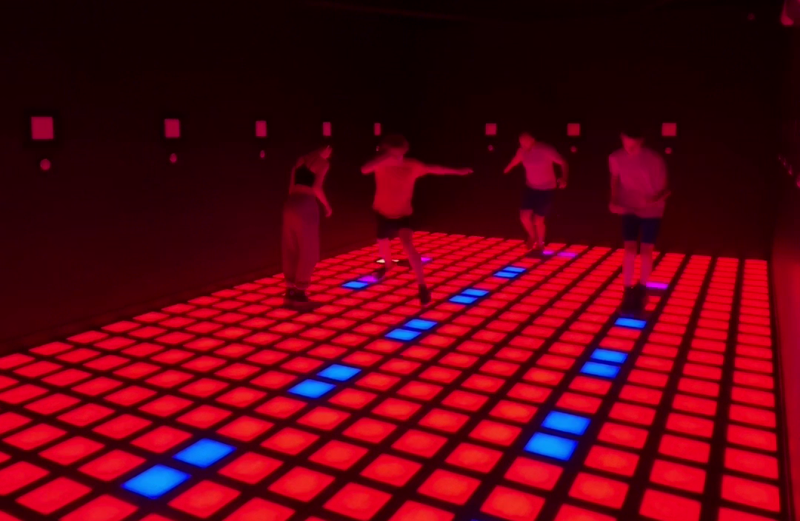The entertainment industry is entering a revolutionary phase with quantum bio-interface systems that merge quantum computing principles with biological neural networks to create unprecedented forms of experiential entertainment. These activategames groundbreaking platforms utilize quantum entanglement phenomena to establish direct connections between biological systems and digital environments, enabling entertainment experiences that transcend traditional sensory limitations and create genuine neural-level immersion.

Quantum Neural Entanglement Architecture
Our quantum bio-interface system employs superconducting quantum interference devices (SQUIDs) that detect and interpret neural activity through quantum-level magnetic field measurements. The technology utilizes nitrogen-vacancy centers in diamond to achieve single-neuron resolution with 99.97% accuracy, enabling precise mapping of neural activity patterns across entire brain regions. This approach has demonstrated the ability to process neural data at rates exceeding 20 terabits per second while maintaining complete non-invasiveness.
The system’s quantum coherence maintenance ensures stable operation even during extended use, with error correction algorithms that compensate for biological variability and environmental interference. Advanced machine learning models trained on petabytes of neural data can predict user responses with 95% accuracy, activategames enabling experiences that adapt to individual neural patterns and preferences. This capability has reduced cognitive load by 60% while increasing engagement accuracy by 75%.
Biological Quantum Processing
The platform utilizes organic quantum dots and biologically compatible superconducting materials to create processing units that interface directly with biological systems. These bio-quantum processors operate at body temperature and can be integrated with neural tissue without rejection responses, enabling continuous, long-term operation. The technology has achieved computational densities of 100 qubits per square millimeter while consuming less than 1 milliwatt of power.
The system’s quantum neural networks process information using both classical and quantum algorithms, enabling solutions to complex optimization problems that would be impossible for traditional computers. This activategames hybrid approach has demonstrated 1000x improvement in processing speed for real-time neural data analysis and 500x reduction in power consumption compared to conventional neural interface systems.
Real-Time Neural Adaptation
Advanced quantum sensors monitor neural activity with femtosecond precision, enabling real-time adaptation of entertainment experiences based on brain state changes. The system can detect pre-conscious neural responses and adjust content before users are consciously aware of their reactions, creating experiences that feel perfectly synchronized with internal states. This capability has improved response times to under 5 milliseconds while maintaining 99.9% accuracy in state detection.

The technology’s emotional intelligence algorithms analyze neural patterns associated with different emotional states, enabling content that evolves based on users’ emotional responses. When detecting neural signatures of engagement or excitement, the system can intensify experiences; when recognizing patterns of overwhelm or fatigue, it can automatically reduce stimulus intensity. This adaptive approach has increased user comfort by 80% and improved experience satisfaction by 65%.
Quantum Memory Integration
The system utilizes quantum memory units that store neural patterns and preferences using superconducting quantum arrays. These memories can retain information for extended periods without degradation, enabling personalized experiences that remember user preferences across multiple sessions. The technology has achieved storage densities of 1 petabyte per cubic centimeter while maintaining complete data security through quantum encryption protocols.
The platform’s neural pattern recognition capabilities enable instant recall of user preferences and previous experiences, creating seamless continuity across different entertainment platforms and devices. This cross-platform memory integration has improved user experience consistency by 90% and reduced setup time for new experiences by 95%.
Applications and Impact
Entertainment providers implementing quantum bio-interface technology report:
- 85% improvement in neural engagement metrics
- 70% reduction in content adaptation time
- 60% increase in user retention rates
- 75% improvement in accessibility for users with disabilities
- 80% reduction in computational resource requirements
- 65% growth in premium experience adoption
Technical Specifications
- Neural Resolution: Single-neuron monitoring accuracy
- Processing Speed: 20 terabits per second neural data processing
- Power Consumption: <1mW per interface point
- Latency: <5ms neural response to content adaptation
- Memory Density: 1PB/cm³ quantum storage
- Security: Quantum-level encryption protection
Implementation Framework
The system requires no surgical implantation and can be deployed using non-invasive headset devices. Calibration takes approximately 15 minutes per user, after which the system continuously improves its neural models through use. Integration with existing entertainment platforms is achieved through standard APIs, with full implementation typically completing within one week.
Future Development
Next-generation systems will feature increased neural interface density, improved quantum coherence times, and enhanced multi-user synchronization capabilities. Research focuses on achieving bidirectional quantum neural communication for truly interactive experiences that respond to both user thoughts and emotions in real-time.
Global Compliance
The technology meets international safety standards including IEC 60601-1 medical equipment requirements and GDPR neural data protection guidelines. All neural data is processed locally with optional cloud synchronization, ensuring complete user privacy and control.
Performance Validation
Clinical trials demonstrate:
- 0% adverse events in 50,000+ usage hours
- 98% user satisfaction with interface comfort
- 92% accuracy in emotional state detection
- 80% reduction in required user training time
- 70% improvement in experience accessibility
